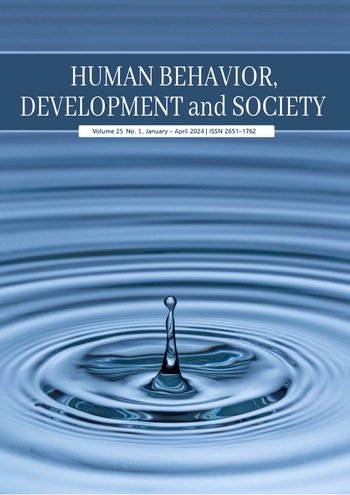Deconstructing Stigmatisation by Heterosexuals of LGBT Against the Backdrop of Religion in Malaysia
Main Article Content
Abstract
The study focussed on deconstructing heterosexuals’ stigmatisation of LGBT in the context of religion in Malaysia. The qualitative study involved semi-structured interviews with 21 heterosexuals (Buddhist, Christian, Muslim). The interview questions focussed on societal and personal views of LGBT. Thematic analysis of interview transcripts totalling 30,488 words showed the lay perspective on the construction of homosexuality in terms of personal choice, situational factors, and ideologies of stigma. The participants were able to empathize with personal choice only because they perceived the LGBT individuals had no chance of reverting to a so-called normal identity. The participants re-animated, rehearsed and re-presented the ideological defence of heterosexuality through repeated stigmatisation of difference and non-conformity in the context of the normative religious beliefs. They also perceived homosexuals as a potential threat to the morality of the norm-compliant population, prone to emotional and psychological instability, and a threat to the veneer of normalcy. The study showed that such popular theorising is not a neutral instrument of knowledge but one that carries ideological power in normalizing stigma towards LGBT.
Article Details

This work is licensed under a Creative Commons Attribution-NonCommercial-NoDerivatives 4.0 International License.
Copyright: Asia-Pacific International University reserve exclusive rights to publish, reproduce and distribute the manuscript and all contents therein.
References
Berger, P. L., & Luckmann, T. (1991). The social construction of reality: A treatise in the sociology of knowledge. Penguin Books.
Butler, J. (2006). Gender trouble. Feminism and subversion of identity. Routledge.
Caulfield, J. (2019, September 6). How to do thematic analysis. Scribbr. https://www.scribbr.com/ methodology/thematic-analysis/
Chodron, V. T. (2008). Dealing with life’s issues: A Buddhist perspective. Kong Meng San Phor Kark See Monastery.
Coleman, J. W. (2002). The new Buddhism: The Western transformation of an ancient tradition. Oxford University Press.
Creswell, John (1998). Qualitative inquiry and research design: Choosing among five traditions. Sage.
Goffman, E. (1968). Stigma: Notes on the management of spoiled identity. Pelican Books.
Guest, G., Bunce, A., Johnson, L. (2016). How many interviews are enough? An experiment with data saturation and variability. Field Methods, 18(1), 59–82. https://doi.org/10.1177/1525822X05279903
Hasenbush, A., Flores, R. A., Kastanis, A., Sears, B., & Gates, J. G. (2014). The LGBT divide: A data portrait of LGBT people in the Midwestern, Mountain and Southern states. The Williams Institute,University of California Los Angeles.
Human Rights Watch. (2021, January 25). Malaysia: Government steps up attacks on LGBT people. https://www.hrw.org/news/2021/01/25/malaysia-government-steps-attacks-lgbt-people
Human Rights Watch. (2022, August 10). Malaysia: State-backed discrimination harms LGBT people. https://www.hrw.org/news/2022/08/10/malaysia-state-backed-discrimination-harms-lgbt-people
Kamano, S. (1990). Cross-national analysis of the social construction of homosexuality and gender. NWSA Journal, 2(4), 696–698.
Lee, J. C. H. (2012). Sexuality rights activism in Malaysia: The case of Seksualiti Merdeka. In M. Ford (Ed.), Social activism in Southeast Asia (pp. 184–200). Routledge.
Mallow, M. S., & Yeoh, S. P. (2019). LGBT and the issue of sexual harassment in Malaysia. Perdana International Journal of Academic Research, 6(2), 82–91. https://myjurnal.mohe.gov.my/public/article-view.php?id=150336
Mohamad, M. (2015). Lesbian, gay, biseksual dan transgender: Perspektif undang-undang jenayah syariah [Lesbians, gays, bisexuals and transgenders: A perspective of sharia criminal law]. Jurnal Undang-undang dan Masyarakat, 19, 29–36.
Orel, N. A. (2014). Investigating the needs and concerns of lesbian, gay, bisexual and transgender older adults: The use of qualitative and quantitative methodology. Journal of Homosexuality, 61(1), 53–78.
Ramlan, Y. (2019, November 21). PM slams West for erosion of values, same-sex marriage. MalaysiaKini. https://www.malaysiakini.com/news/500763
Shamsudin, Z., & Ghazali, K. (2011). A discursive construction of homosexual males in a Muslim-dominant community. Multilingua, 30(3–4), 279–304. https://doi.org/10.1515/mult.2011.013
Teh, Y. K. (2008). Four politics and Islam: Factors determining identity and status of male-to-female transsexuals in Malaysia. In F. Martin, P. A. Jackson, M. McLelland, & A. Yue (Eds.), AsiaPacifiQueer: Rethinking Genders and Sexualities (pp. 85–98). University of Illinois Press.
Vasileiou, K., Barnett, J., Thorpe, S., & Young, T. (2018). Characterising and justifying sample size sufficiency in interview-based studies: systematic analysis of qualitative health research over a 15-year period. BMC Medical Research Methodology, 18, 148. https://doi.org/10.1186/s12874-018-0594-7
Yukari, F. (2020, September 24). The evolution of “Boys’ Love” culture: Can BL spark social change? https://www.nippon.com/en/in-depth/d00607/
Zainon, S., Zarihan, S., Faizal, M.A.M., & Shahirah, S. (2018, March 19–22). The discursive strategies used by young homosexual males in the construction of their identity. In A. Mohd Lokman, Y. Toshimasha, P. Levy, & K. Chen, & S. Koyama (Eds.), Proceedings of the 7th International Conference on Kansei Engineering and Emotion Research, 739, 712–720. Springer Nature Singapore. https://doi.org/10.1007/978-981-10-8612-0_74
Zulkffli, M. A., & Rashid, R. A. (2019). Discursive strategies employed by homosexual Malaysian Muslim men in talking about homosexuality in Islam. Discourse & Society, 30(3), 307–320.


